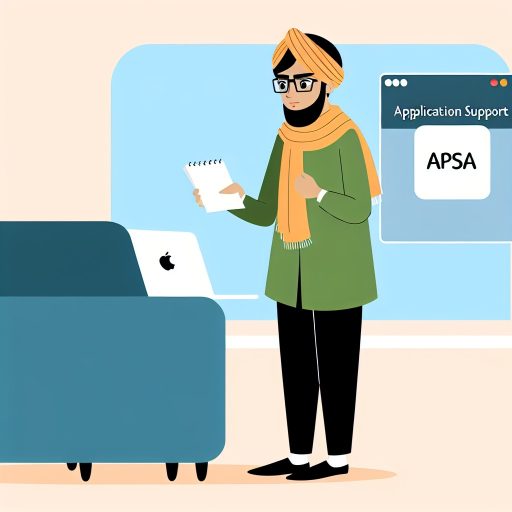Introduction
An IT Compliance Analyst plays a crucial role in ensuring that organizations adhere to various regulatory requirements.
Role and Responsibilities of an IT Compliance Analyst
An IT Compliance Analyst is responsible for monitoring IT systems.
The analyst audits and enforces compliance with regulations related to IT systems and data security.
Significance of Compliance Regulations in the IT Industry
Compliance regulations are essential in the IT industry to protect sensitive data.
They help mitigate risks and maintain the trust of customers and stakeholders.
Overview of key compliance regulations
When it comes to IT compliance, several key regulations require organizations to protect sensitive data.
These regulations also ensure the security of their systems.
IT compliance analysts should be familiar with these important regulations.
- General Data Protection Regulation (GDPR)
The GDPR is an EU law on data protection and privacy for individuals in the EU and European Economic Area.
It also addresses the export of personal data outside these areas.
- Health Insurance Portability and Accountability Act (HIPAA)
HIPAA is US legislation that provides data privacy and security rules to safeguard medical information.
It sets standards for how sensitive healthcare information must be protected and handled.
- Payment Card Industry Data Security Standard (PCI DSS)
PCI DSS is a set of security standards for companies that accept, process, store, or transmit credit card information.
Compliance is required by card brands and enforced by acquirers.
Adhering to these regulations helps organizations avoid penalties and data breaches.
IT compliance analysts play a vital role in keeping organizations compliant.
They also protect systems and sensitive data from security risks.
Explanation of GDPR
The General Data Protection Regulation protects the personal data of individuals within the European Union.
Implications for IT Compliance Analysts
IT Compliance Analysts play a crucial role in ensuring organizations follow GDPR requirements when handling personal data.
Significance of Protecting Personal Data
Protecting personal data maintains the trust and confidence of customers and stakeholders.
Consequences of GDPR Non-Compliance
Non-compliance can cause hefty fines, reputational damage, and loss of business opportunities.
Delve into the Subject: Salary Expectations for Technical Account Managers
In the world of healthcare, the protection of sensitive patient information is paramount.
The Health Insurance Portability and Accountability Act (HIPAA) regulations set the standard for data security.
Insight into HIPAA regulations
- HIPAA regulations were enacted in 1996 to safeguard patient information.
- These regulations govern the use and disclosure of protected health information (PHI).
- HIPAA compliance ensures patient privacy and data security in healthcare settings.
Importance of safeguarding healthcare information
- Protecting healthcare information is crucial for patient trust and confidentiality.
- Safeguarding data prevents identity theft and fraud in the healthcare industry.
- Failure to protect healthcare information can lead to legal and financial consequences.
Role of IT Compliance Analyst in ensuring data security
- IT Compliance Analysts play a key role in implementing and monitoring HIPAA regulations.
- They oversee security measures, conduct risk assessments, and enforce compliance policies.
- IT Compliance Analysts collaborate with IT teams to address vulnerabilities and enhance data protection.
Consequences and penalties for violating HIPAA regulations
- Violating HIPAA regulations can result in hefty fines and penalties for organizations.
- Penalties range from $100 to $50,000 per violation, up to $1.5 million annually.
- Repeat offenders or those who willfully neglect HIPAA compliance can face criminal charges.
HIPAA regulations are essential for protecting patient information.
These rules also ensure data security in the healthcare industry.
Transform Your Career Today
Unlock a personalized career strategy that drives real results. Get tailored advice and a roadmap designed just for you.
Start NowIT Compliance Analysts play a crucial role in upholding these regulations.
They help prevent violations that could result in severe penalties.
By understanding and adhering to HIPAA regulations, organizations can maintain patient trust.
They can also secure sensitive healthcare information effectively.
Discover More: Collaborating with Stakeholders as a Business Systems Analyst
When it comes to IT compliance, one key regulation organizations must follow is the Payment Card Industry Data Security Standard (PCI DSS).
This set of requirements ensures secure handling of payment card transactions.
It protects cardholder data effectively.
Examination of PCI DSS Requirements
The PCI DSS requirements cover network security, access control, and encryption.
Organizations processing payment card transactions must comply with these requirements.
- Implementing strong access control measures to restrict access to cardholder data.
- Regularly monitoring and testing networks to ensure security mechanisms are in place.
- Encrypting data transmitted over open, public networks to protect cardholder information.
Ensuring Secure Payment Card Transactions
As an IT Compliance Analyst, you must ensure your organization follows PCI DSS requirements to maintain compliance.
This involves collaborating closely with IT teams and stakeholders to implement security measures.
These measures protect payment card data effectively.
- Conducting regular audits and assessments to identify vulnerabilities and areas for improvement.
- Providing ongoing training and guidance to staff on best practices for securing payment card transactions.
- Collaborating with external auditors to verify compliance with PCI DSS requirements.
Responsibilities of IT Compliance Analyst in Maintaining Compliance
Your role is crucial to ensuring your organization meets regulatory standards to protect sensitive data.
You must stay up-to-date on changes to regulations and best practices.
Proactively identifying and addressing compliance issues is essential.
- Developing and implementing policies and procedures to achieve and maintain PCI DSS compliance.
- Participating in risk assessments to identify vulnerabilities and assess security control effectiveness.
- Collaborating with internal teams to address compliance gaps and implement remediation plans.
Implications of Non-Compliance with PCI DSS Regulations
Failure to comply with PCI DSS regulations can have serious consequences for organizations.
These consequences include financial penalties, reputational damage, and loss of customer trust.
Non-compliance can also lead to data breaches and theft of sensitive information.
Such incidents result in significant legal and financial repercussions.
Transform Your Career Today
Unlock a personalized career strategy that drives real results. Get tailored advice and a roadmap designed just for you.
Start Now- Financial penalties imposed by payment card networks for non-compliance with PCI DSS.
- Reputational damage and customer trust loss due to data breaches from weak security.
- Lawsuits and legal action from customers affected by compromised payment card data.
As an IT Compliance Analyst, prioritize PCI DSS compliance to protect payment card transactions.
Following requirements and proactively addressing compliance gaps reduces risks related to non-compliance.
This approach helps maintain a secure and trusted payment environment.
You Might Also Like: The Importance of Data Preprocessing in Machine Learning

Comparison of key compliance regulations
- GDPR (General Data Protection Regulation) focuses on data privacy and protection.
- HIPAA (Health Insurance Portability and Accountability Act) targets healthcare data security.
- PCI DSS (Payment Card Industry Data Security Standard) aims at securing payment card information.
- Despite their unique focus areas, all three regulations require organizations to implement security measures.
- Organizations must conduct regular assessments and ensure confidentiality, integrity, and availability of sensitive data.
- GDPR and HIPAA mandate data breach notification within strict timelines.
- PCI DSS specifies comprehensive requirements for secure payment card processing and storage.
- GDPR and HIPAA emphasize the importance of data subject rights and consent.
- PCI DSS concentrates on secure network configurations and encryption protocols.
- Organizations operating within these regulations must follow specific guidelines to protect information.
How IT Compliance Analysts can navigate and prioritize these regulations
- Conduct a comprehensive regulatory gap analysis to find non-compliance areas.
- Prioritize remediation efforts based on risk and impact.
- Establish a centralized compliance management system to track and monitor regulatory activities.
- Ensure timely responses to audits and inquiries through the system.
- Collaborate with cross-functional teams including legal, IT, and business units.
- Align compliance requirements with organizational goals and objectives.
- Stay informed about regulatory updates by attending training sessions, webinars, and conferences.
- Enhance knowledge and expertise continuously to handle compliance demands.
- Leverage automation tools and technologies to streamline compliance processes.
- Reduce manual errors and improve efficiency in managing regulatory obligations.
Uncover the Details: Educational Pathways to Becoming a CRM Developer
Balancing Multiple Compliance Regulations
One of the primary challenges for IT Compliance Analysts is the need to navigate and comply with many regulations.
These regulations come from various sources, such as industry standards, government mandates, and internal policies.
Each regulation has unique requirements, making it essential for analysts to stay organized and up-to-date.
Failure to comply with any regulation can result in severe penalties, including fines and reputational damage.
Keeping Up with the Evolving Regulatory Landscape
The regulatory landscape continually evolves, with new regulations introduced and existing ones updated.
IT Compliance Analysts must constantly monitor these changes and assess their impact on the organization.
Staying ahead requires continuous learning and ongoing training to ensure compliance measures remain current.
Additionally, analysts must communicate changes effectively to key stakeholders within the organization.
Ensuring Company-Wide Understanding and Adherence to Compliance Standards
IT Compliance Analysts play a crucial role in ensuring that all employees understand and follow compliance standards.
They develop and implement training programs to educate employees on these standards and their importance.
Regular audits and monitoring verify compliance and address any issues promptly.
Creating a culture of compliance within the organization helps mitigate risks and maintain a strong reputation.
Challenges in Meeting Compliance Requirements and Fostering a Compliance Culture
IT Compliance Analysts face significant challenges in meeting compliance requirements and adapting to regulatory changes.
They also work to foster a culture of compliance within the organization to strengthen overall security and trust.
Essential Compliance Knowledge for IT Analysts
IT Compliance Analysts must thoroughly understand key compliance regulations.
Transform Your Career Today
Unlock a personalized career strategy that drives real results. Get tailored advice and a roadmap designed just for you.
Start NowThis knowledge ensures organizations operate within legal frameworks.
Important regulations include GDPR, HIPAA, and SOX.
IT Compliance Analysts need to be well-versed in these regulations.
Their role is crucial in maintaining regulatory compliance.
They also protect sensitive data from breaches effectively.
Ongoing training and professional development are imperative for these analysts.
This training helps them stay updated with changing regulations.
By staying informed, they can navigate complex compliance landscapes.
This enables organizations to avoid costly penalties effectively.




